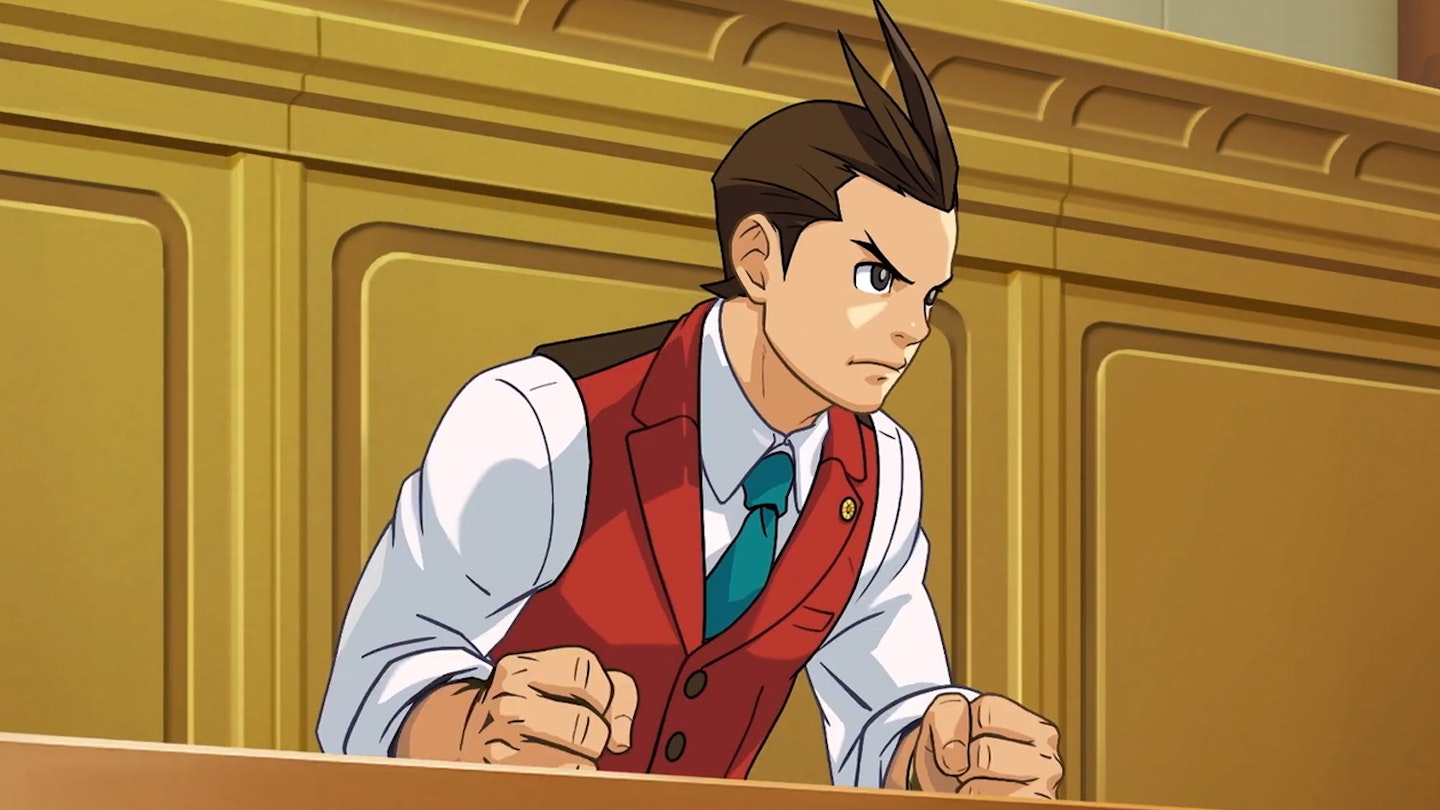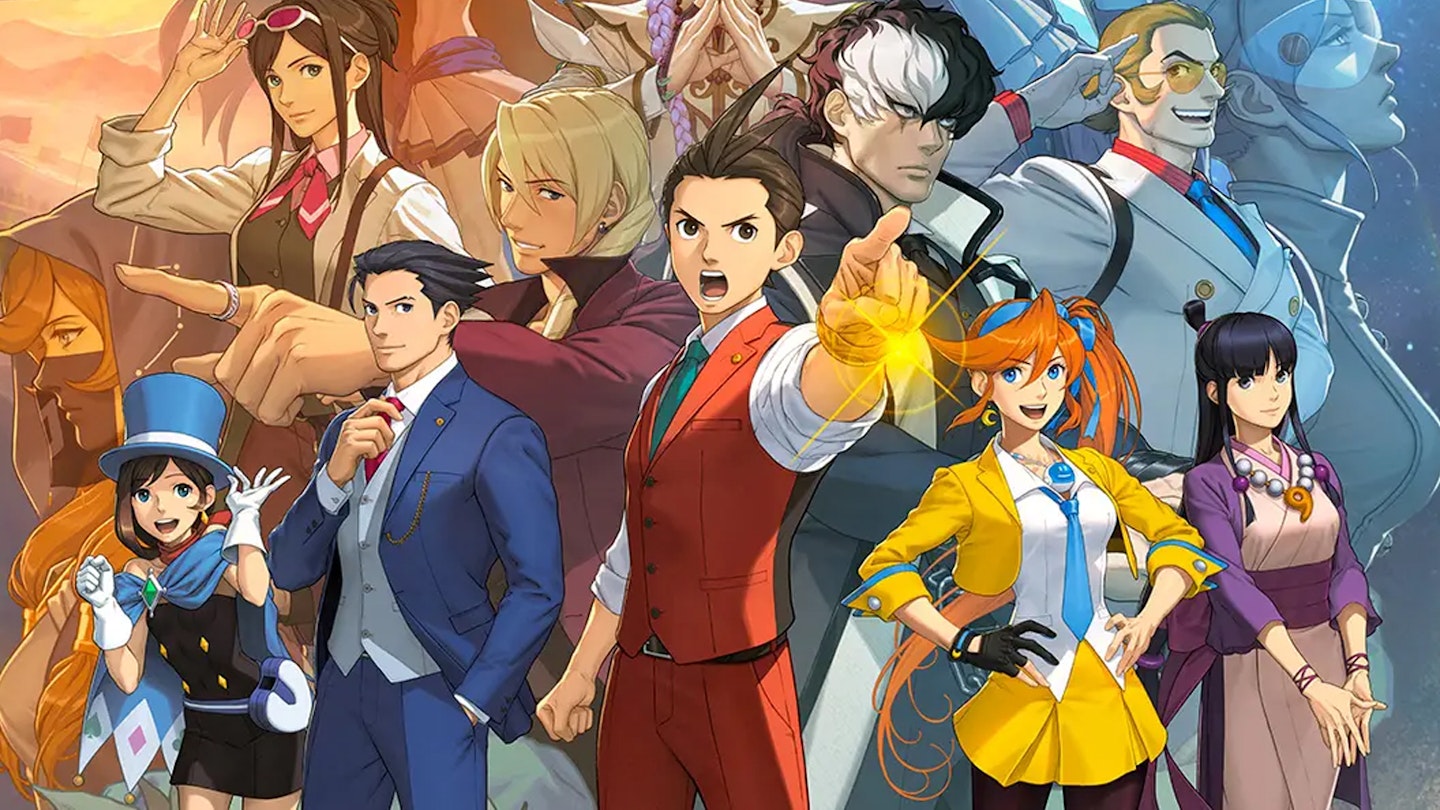Platforms: Nintendo Switch, PS4, Xbox One, PC
Jump back to 2001, when Capcom's Ace Attorney series debuted on the Game Boy Advance in Japan as ‘Gyakuten Saiban’ and it seemed doomed to never escape its native shores. Yet more than 20 years later, it's become a cult international hit – not bad for a visual novel courtroom drama with minimal interactive elements. Unfortunately, with several of the games in the series only released digitally in the west, they became almost impossible to play when Nintendo shut down its 3DS eShop.
That injustice is corrected with this collection of the second main trilogy in the long-running series, collecting Apollo Justice: Ace Attorney, Phoenix Wright: Ace Attorney – Dual Destinies and Phoenix Wright: Ace Attorney – Spirit of Justice, and remastering them for good measure. Based on later high-def iOS and Android releases of the games, this package sees all three games get a significant visual boost.

However, it's not quite as sharp a remaster as fans may have been hoping for. Although the trio of games are significantly better looking than their original handheld incarnations – especially the latter pair – there's still some visible pixelation and a general lack of detail that, while ignorable at smartphone resolutions and viewing distances, is readily apparent when blown up on a TV screen. The Switch release (version tested) mitigates this somewhat in handheld mode, at least.
Still, these aren't games people come to for GPU-stressing visuals – Ace Attorney has earned its stripes for fantastic characters and melodramatic court cases packed with ridiculous twists, all hinging on a meticulous attention to detail. That remains the case here and, thanks to tighter translations, the trilogy delivers three of the finest stories in the wider franchise.
The first, taking place seven years after the previous trilogy (itself upgraded for modern consoles as Phoenix Wright: Ace Attorney Trilogy in 2019), introduces new protagonist Apollo Justice, whose very first case involves defending the former hero from a murder charge. While Apollo takes a less prominent role in the latter two games – where Phoenix regains top billing – it's a real delight to see the series' expansive cast grow, change, and evolve across the trilogy.
When you pull apart a bogus statement and deliver a meme-worthy "OBJECTION!" interjection, it's all worth it.
However, it can't be avoided that these are incredibly slow games. Courtroom gameplay consists of cross-examining witnesses to each case, pressing them for more information on their testimonies, and looking for inconsistencies, with Apollo having the power to home in on a defendant's suspicious tics and tells, opening up new avenues to tear apart their lies. Examining evidence adds a bit more of a conventional point-and-click adventure feel at times – rotating an item to find a hidden clue, for example – but it's still incredibly basic stuff. While Dual Destinies and Spirit of Justice add a few new gimmicks – such as evaluating a suspect's emotional state – the series is never particularly mechanically challenging. Still, when you correctly pull apart a bogus statement and deliver one of the series' meme-worthy "OBJECTION!" interjections, it's all worth it.
A few quality-of-life improvements for the trilogy help to streamline things, too – especially on Apollo Justice: Ace Attorney, which now has the history feature of later games, allowing you to re-read dialogue in case you miss a crucial statement. It's also now possible jump into any chapter of any game, although this is only really helpful for replays – great if you already have the cases committed to memory and want to revisit a favourite moment, but not much help for newcomers who might find themselves clock-watching as they tap through endless reams of dialogue.
The trilogy also crams in a generous helping of bonus content, which is sure to delight long-time fans. The pièce de resistance is undoubtedly Orchestra Hall, a dedicated music player with a whopping 175 tracks from across the trilogy, including orchestral performances from the series' 15th anniversary concerts, and two brand new tracks for the remaster collection. Tracks can be played non-stop, looped, or broken down by game, or you can create playlists of favourite tracks from across the suite.
A similarly comprehensive Art Library offers up reams of character designs, in-game backgrounds, and key art visuals to pore over, while the Animation Studio takes advantage of the simple character movements in the games, allowing you to create your own compositions from a catalogue of cast, poses, and settings. Best of all, all this museum content is available from the outset, rather than being locked behind completion criteria.
Although existing fans are likely to get more from Apollo Justice: Ace Attorney Trilogy than first-timers, it's a great collection for a strangely compelling series. But best of all for those who fall for its charms is the simple fact that it's now possible to play every core Ace Attorney game on a modern console – case closed.
